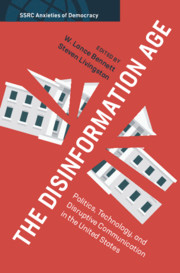Editors
John A. Ferejohn, New York University
Ira Katznelson, Columbia University
Deborah J. Yashar, Princeton University
With liberal democracies afflicted by doubt and disquiet, this series probes sources of current apprehensions and explores how such regimes might thrive. What array of pressures most stresses democratic ideas and institutions? Which responses might strengthen these regimes and help them flourish? Embedded in the Social Science Research Council’s program on “Anxieties of Democracy,” the series focuses on how representative institutions – including elections, legislatures, political parties, the press and mass media, interest groups, social movements, and policy organizations – orient participation, learning, and accountability. The volumes in the series further ask how particular policy challenges shape the character of democratic institutions and collective actors, and affect their capacity to address large problems in the public interest. These challenges include, but are not limited to: (1) designing democratic institutions to perform successfully under conditions of social and political polarization; (2) managing and orienting contemporary capitalism and alleviating hierarchies of inequality; (3) addressing questions of membership, including population movements and differentiated citizenship; (4) choosing policies to balance national security and civil liberty; (5) exploring the effects of global climate on citizens and the human impact on the environment; (6) managing the development of media and information technologies to ensure they enhance, rather than degrade, robust pluralism and civil political engagement.

